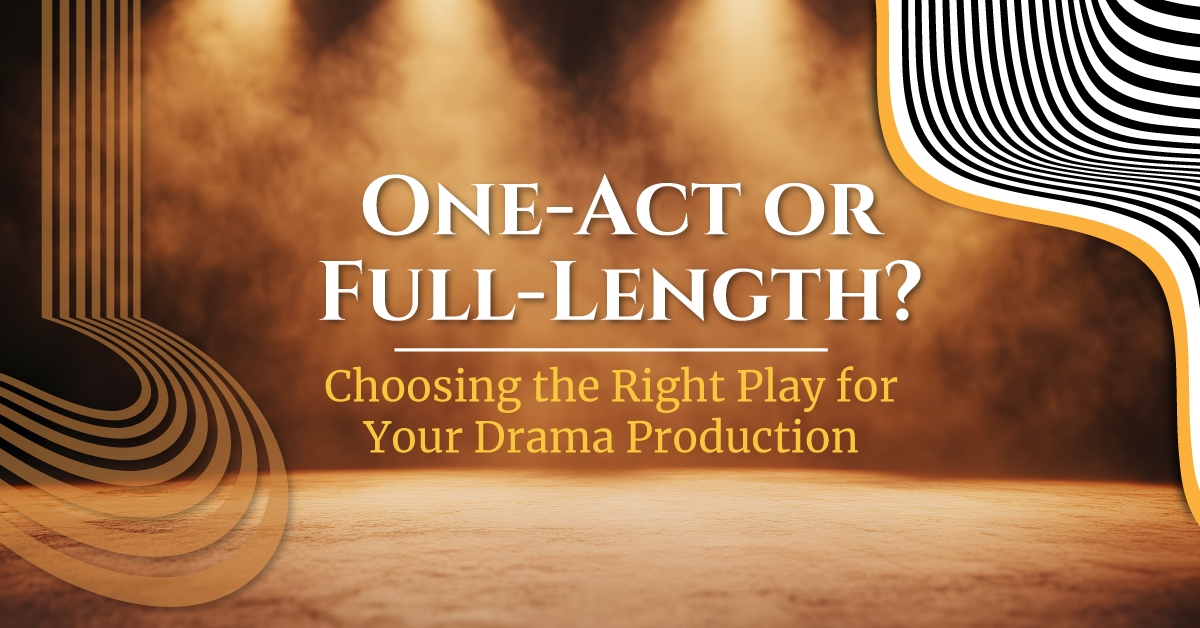One-Act or Full-Length? Choosing the Right Play for Your Drama Production
Starting a new production is exciting — and sometimes a little overwhelming. One of the first big decisions you’ll make is whether to tackle a one-act play or a full-length play. Both have their benefits, both have their challenges, and the “right” choice depends on your students, your time, and your goals. Let’s break it down!
Consider Your Timeframe
How much time do you have to rehearse? What does your school calendar look like? Will there be testing in the middle of your full-length show? What does the calendar for your performance space look like? Sometimes time will make your decisions for you.
- One-acts are short and can run anywhere from 20 to 55 minutes. They’re perfect if you’re tight on rehearsal time, want to perform at a festival, or just need a lower-stress option.
- Full-lengths typically run 75–120 minutes, which means more rehearsal time, more memorization, and more moving parts. But they also give you and your students the satisfaction of tackling a bigger project.
Think About Your Cast Size
- Got a small but mighty group? One-acts are sometimes written with smaller casts in mind, and often offer flexible roles. A small cast full-length puts a lot of pressure on your student actors.
- If you have a large ensemble who all want to shine, a full-length might give you the space to spread out roles, add cameos, or double-cast.
Skill Level Matters
- Middle school or brand-new drama students? A one-act is often less intimidating and gives them a strong sense of accomplishment without overwhelming them.
- High school veterans or advanced students? A full-length show can push them further, helping them develop stamina, deeper character work, and better teamwork skills.
Production Goals
Ask yourself: What’s the purpose of this production?
- If your goal is to compete (UIL, festivals, contests), you are looking at one-acts.
- If your goal is to wow the school and community with a big showpiece, a full-length may be the way to go.
- If your goal is to build confidence and community in your program, one-acts are a great stepping stone.
Logistics and Resources
- Budget: One-acts will have smaller royalty fees and fewer technical requirements.
- Rehearsal space: Do you have enough time and space to run a full-length production, or would a one-act be easier to slot into your schedule?
- Audience: A school day matinee? Parents squeezed for time? One-acts fit neatly into shorter attention spans.
Why Not Both?
Some schools solve the dilemma by staging an Evening of One-Acts: multiple shorter plays performed back to back. This allows more students to get involved, more styles to be explored, and gives the audience a fun, fast-paced variety night.
Final Takeaway
There’s no wrong choice. Whether you choose a one-act or a full-length, what matters most is how the play fits your students, your program, and your community. When your students feel challenged, supported, and excited, you’ll have chosen the right show.
Check out Theatrefolk’s full catalogue of fantastic one-act and full-length plays — perfect for student performers in any drama program!



